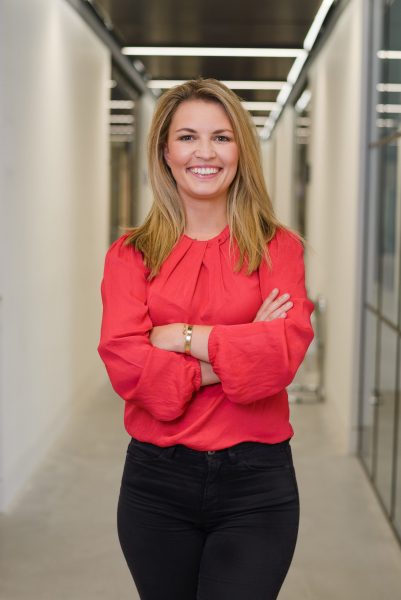
By Ashleigh Hinde, CEO and founder of Waldo
Being an entrepreneur offers a range of unique challenges.
Starting a business is one thing, but being able to label your enterprise as disruptive, scalable and innovative, requires an evolving skillset. Starting a business as a female founder adds a different layer of difficulty.
Throughout the business world, there is a clear disparity when reviewing the gender split of those in charge. Currently, whilst 2020 has demonstrated an all time high when looking at the number of women running the largest corporations, female leadership only stands at 7.4 per cent, with only 26 of the Fortune 500 led by female CEOs.
As a young, female entrepreneur tackling the optometry industry which is dominated by big, established pharmaceutical conglomerates, it was – and still remains to be – a sizable task. As with any start-up, our launch wasn’t without difficulties.
These difficulties that I was to face became all too apparent when I began to approach investors for backing and was told I would indefinitely “go further” if I was to bring on a male co-founder to my company. When looking at the current make-up of funded start-ups, it’s not surprising that they thought Waldo would be more successful with a male co-founder on board. As reported by Fortune, only 2.2% of VC funding goes to female led companies. However, I intrinsically disagree with giving into that equality bias and refuted this. If I was to bring on a co-founder, or any member of the team, male or female, it would be because of their skills and attitude; certainly not their gender.
I started my company, Waldo, whilst studying for my master’s degree and taking a break from my career in Consulting. It came from a personal pain point – I’ve been a lens wearer for the majority of my adult life – and have often wondered about them; the cost; where they are made; the delivery cycle; why the price differs so dramatically by channel and country. It turns out that lenses have really complicated distribution channels and greedily high margins taken at every point in the cycle, meaning that lens wearers, generally, lose out to big pharmaceutical companies. Understandably, the more I researched this, the more frustrated I became. With a background in business, one of the key things I’ve learnt is that to be successful, you need to produce a solution to a consumer need; I saw this as my moment to make a difference.
By delivering high-quality daily contact lenses at an affordable price directly to the customer Waldo can cut out the distribution costs in delivery while delivering a much more flexible and tailorable service to our customers, without compromising on quality. Throughout this process, I was thinking about the consumer pain point, having the right team, the quality of the product; not the fact that I would be facing an uphill struggle purely because of my gender.
Ignoring the advice to bring a male co-founder on board was a watershed moment and something I didn’t take lightly, choosing to seek advice from my Harvard professor, Jim Fitchett. His advice was to instead create a team of advisers rather than giving a co-founder half of the business which was solely based on my idea and research. He also gifted me the advice to “never underestimate how much people want to help people”, which is something I remember through every business decision I make. I have always been open to listening to ideas from other entrepreneurs, investors and mentors about how to run a company. Many of those pieces of advice have been hugely valuable, but I have become cautious with what feedback I take on and place a high value on the context it is given in.
I put a lot of our success down to my team who are all incredibly execution orientated and growth minded. Generally in business, it’s a combination of finely tuned variables – brand, technology, operations, team culture, supportive investors to name a few. Hiring additional team members is an incredibly important part of our growth and we place a huge emphasis on finding team members who feel as passionately about the success of the company as we all do.
Now, three years into Waldo’s journey, the benchmark continues to move every day. We have expanded into the US and Europe, tripled the size of our team, and reached over 180,000 subscribers. We still encounter daily business challenges and are continuing to learn, but I can confidently say that regardless of how much we have grown, every win today is still as exciting as it was at the very beginning. It is important to celebrate each and every win, no matter its size.
Whilst tackling the established, traditional optometry industry, merging the offline and online worlds and innovating are on my list for the future of Waldo, what we have already achieved in a matter of years is incredible.
Since our first year of operation, my role as a leader has definitely changed, but my mission to advocate for female entrepreneurs everywhere won’t ever end, and I truly feel that it’s a company’s place to mitigate not only the human gender bias which sits so strongly within business, but bias as a whole.
About the author
Ashleigh founded Waldo in August 2017, and has since grown it into a global company serving over 180,000 subscribers worldwide. Hinde graduated from Harvard University with a Master’s degree the year prior to founding Waldo, and has since launched Waldo in the UK, expanded to Europe and the US following an injection of £3.7m series A venture capital funding.
Are you an entrepreneur or looking to start your own business? We’ve got hundreds of articles on learning entrepreneurial skills, how to become your own boss, marketing your products and managing your own team. You can find more of our entrepreneurial articles here.








